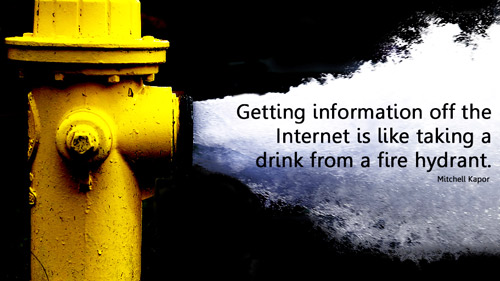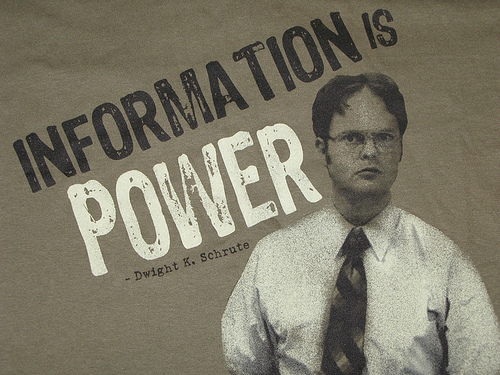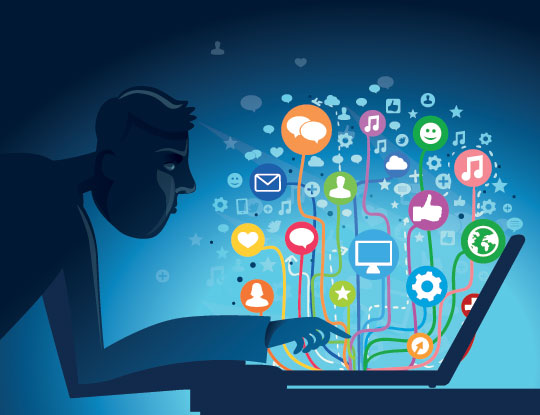I consume information as relentlessly as others do injectable drugs. I will digest hot news, be they national or global, as much as random historical facts; I will chew on MOOC lectures and the concepts behind XKCD comics all alike; I will devour TED talks with as much excitement as Reddit’s daily top threads. I train on a daily basis on Chesscademy while learning German on Duolingo. I keep tabs on the latest programming trends for sites that I launch as sideprojects, I watch Casey Muratori’s awesome video tutorial on a daily basis, and I always keep track of what happens to my favourite companies: Tesla Motors, Google… Oh, and please let’s not talk about managing emails.

All these take place in parallel to my studies, and in addition to my social life. That distinction is key: I find that despite all this very time consuming information acquisition, the actual impact on my going out with friends or entertaining random social activities is quite surprisingly not that high. There are a bunch of reasons for this, which I list below. Because they tend to make me efficient at consuming information, these reasons actually form the bulk of my thinking that it might not be that bad after all:
- 1. I do not need lots of sleep time anyway: between 4 and 6 hours per night
- This is the true blessing for me, together with the fact that I can pretty much sleep on command (thanks for the genes, mom!). This means I can go to sleep at 4am, get up at 8 something —classes begin at 9am— and I normally won’t be begging for more sleep. Hell, I won’t even be grumpy, or at least not more than I usually am :)
- 2. We lucky Business students are allowed to have computers during class
- A direct consequence of this is that with two classes per day, I will already spend up to 6 or 7 hours digesting information on my computer, occasionally glancing over to the lecturer depending on my interest for the topic taught and the required level of concentration on the lecture for me to “get it“. Then I will come back home and add a few hours of browsing, gobbling, munching, chewing and more generally feasting on more information, either before or after going out with friends. Living in Shanghai is great for this, there’s always lots to do.
- 3. Let’s face it: we’re all doing this stuff to some extent
- Ah, the joys of the Information Age… ubiquity of Internet access, reinforcement loops and group-think led by social media patterns, as well as lots of similar factors certainly make it so that I find many people of my generation concerned about the same sort of issues. Not that they are necessarily experiencing this information overload to the same extent, of course, but at least it seems that for many students my age, not only does this phenomenon exist but they are conscious of it. Is that to say we all addicts? Meh. Not a particularly good argument, but still it puts the premise into perspective…
- 4. I generally restrain from getting involved in Internet-related stuff
- This is very deliberate from my end, and of course contrary to some of my core beliefs regarding the Internet. I can’t help but cringe at the paradox, and at the same time I simply have way too much to do to be able to afford spending time writing posts or commenting on public forums. I used to do this for years, notably on the WordPress-Francophone community forums, where I have been helping people through thousands of posts since 2007, but I turned my contribution level down after getting admitted to my current business school. It simply wasn’t sustainable anymore, and I strongly suspect that this allowed me to avoid Internet addiction and trend more towards Information addiction —which is arguably much better, right? Right?

Engranging a large amount of information is, unsurprisingly, very beneficial. The “Information is power” mindset won’t ever drift away, of course, but even before acquiring and exercising power, accessing extensive information is simply increasingly needed for all but the most basic conversations. In this Digital Age where technology invades and permeates every single aspect of our lives, it seems that while everything is increasingly simpler to use and do, everything is increasingly more complex to comprehend, let alone to discuss. Being informed on the inner workings of as many things as possible, whatever the topic of the day, is at the same time a strong advantage when arguing, an opportunity for providing useful and relevant data or some new point of view, and a great catalyst for sparking discussion and letting one’s mind wander from thought to thought.
That said, this is a huge time sink coming with lots of downsides. I have listed those that, to me, seem to be the main ones; of course this kind of output is inherently very personal, so I expect people to have very different views on this:
- 1. Fear of missing out on crucial information, resulting into stress
- In Shanghai, where I have been living over the past 3 months, it is quite frequent for Internet access to go down for up to a few days; what do you do then? Won’t the world have changed drastically in that timeframe? What about all these unread posts, breaking news that I will have to catch up with afterwards? Just like sleep or jet lag, this information-lag can induce some sort of stress after prolonged periods of deprivation.
- 2. Self-censorship and/or Writer’s block
- This is another major negative side effect. Because you read and learn so much about so many things, on the one hand you become much more alert and able to dissert on lots of issues, on the other hand, in a somewhat paradoxical way, you tend to censor yourself into not doing it. After all, how can you expect to produce anything remotely original? Haven’t all the good posts been written and all the good discussions been held by now? Hasn’t every person interested in these topics already made up his/her opinion? When you thrive on stuffing yourself with information, you come to despise people who simply recopy or restate the original content, with no or little added value. That frustration leads to an intense desire to break this vicious circle of social media and therefore not to write about anything for fear of not interesting anyone, or of alienating those who would be most interested in the first place*!
- 3. Unsustainable expectations leading to (easily expressed) high frustration
- This is, to me, the leading negative outcome of being relatively informed on every major event, at all times: after a while, you end up expecting everyone you meet to do the same and cannot understand why they wouldn’t want to be better informed. Of course most if not all of them aren’t in the same mindset as you are, so there will usually be a high asymmetry of information between yourself and your interlocutors. And neither appearing as the guy who knows everything or having to “play dumb” turns out to be fun. On the contrary, it is quite frustrating to have to look for ways to state a point without alienating the people who (more often than not) end up being corrected. Having at least some sort of twisted sense of humour certainly helps a lot in this regard: mastering the act of namedroping fact bombs or data bombs while making everyone laugh is an awesome way to save the day! Last but not least: of course one cannot be right all the time, on average we’re probably wrong dozens of times per day; but self-criticism is hard when people don’t like to challenge you because you appear to them as the Expert© on this or that.

There’s no real conclusion to this post (sorry), is was really more of a reflection on an issue that I feel is shared among lots of 20-something people in most industrialized economies where easily accessible information sources tend more and more to dominate our lives. I certainly won’t commit the crime of drafting a list of “The TOP 10 Ways To FREE yourself from Internet and FOCUS On The Things That REALLY Count“. See? All is not lost! I won’t do it, first because I vigorously hate these lists, second because I feel that information overload/addiction is deeply linked to one’s personality traits (curiosity, ambition, introversion, and probably a bit of Attention deficit hyperactivity disorder for good measure), consequently there’s most probably no single set of solutions, nor are there standard coping mechanisms.
Nonetheless, I’d love to read your comments on the matter. In particular, if you’re in the same mindset as I am, if you have encountered similar issues at one point in your life, and of course if you happen to have found some kind of way to effectively balance your desire for tasty, juicy pieces of information, please do share your story :)
back — Actually, this is why I haven’t dared to look at the huge corpus related to information overload that is available upon a trivial Google search ;)
The images used in this post are all over the place so I couldn’t attribute them to a particular author. If you know more about their original creator(s), tell me!